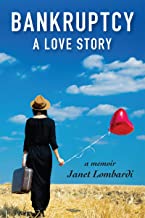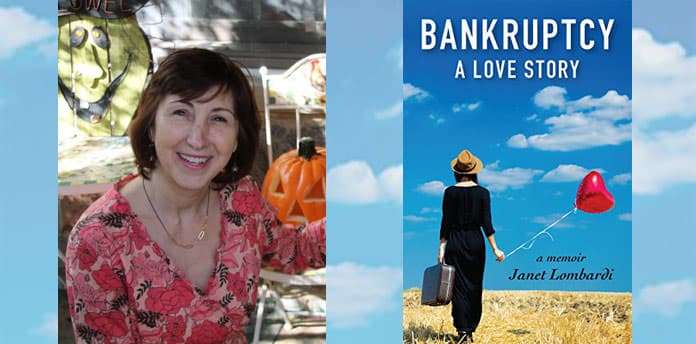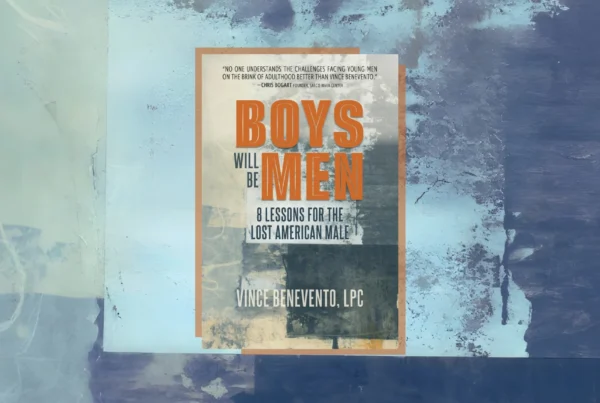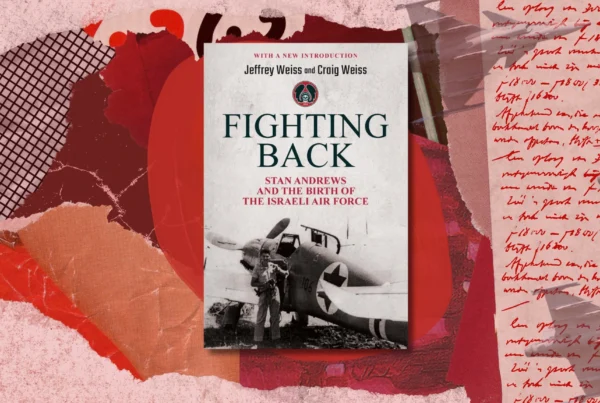Bankruptcy: A Love Story by Janet Lombardi
Janet Lombardi experienced plenty of loss and heartbreak over the past seven years. As she wrote Bankruptcy: A Love Story, Janet Lombardi went on a journey of self-discovery, morphing her writing and becoming stronger every day. Here, she talks about her story and writing a memoir.
I had a burning desire to write the story that became Bankruptcy: A Love Story. It’s a memoir, published by Heliotrope Books, on June 6. I had to tell this story.
Writing Your Own Catastrophe
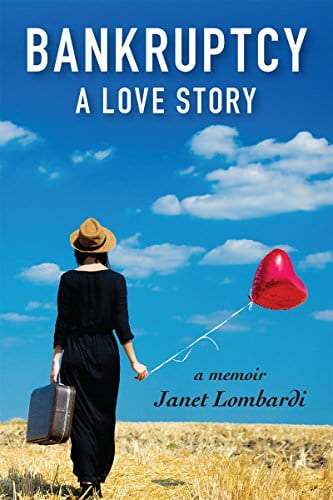 In December 2010, my husband, Josh, stood before a judge, received a two to five-year prison sentence, was handcuffed, and walked escorted through a metal cage into his life as an inmate of New York state prison. Josh’s incarceration, the result of desperate acts, was fueled by a long string of events: mounting debt, a clandestine affair of my own, heroin addiction, our troubled marriage, and the effects of 9/11.
In December 2010, my husband, Josh, stood before a judge, received a two to five-year prison sentence, was handcuffed, and walked escorted through a metal cage into his life as an inmate of New York state prison. Josh’s incarceration, the result of desperate acts, was fueled by a long string of events: mounting debt, a clandestine affair of my own, heroin addiction, our troubled marriage, and the effects of 9/11.
Those are the dramatic parts of the story. But the real story is about confronting and dealing with a catastrophe—something unexpected that changes your life. I wrote about my imperfect marriage and my role in the descent of that partnership. I allowed myself to be vulnerable, which was difficult. I had a burning desire to express how things never happen in the proverbial vacuum. How my two sons (then college and high school age) dealt with the situation. How I found my way out by choosing the road of compassion and forgiveness.
The Power of Secrets
The book I completed was very different than the book I started. Originally, I was writing about the romantic liaison I was having with another woman but as things shifted in the marriage and facts were revealed I realized I wasn’t the only one hiding secrets. I’m interested in the nature of secrets—what makes a secret and the power of secrets to endure or destroy. Secrets can sometimes bring people together but can ultimately wreck relationships. Trust is difficult, if not impossible, to restore once it’s breached. As I discovered secrets – for instance, my husband had emptied accounts – the book took on a new urgency.
Exchange between Writer and Reader
I was inspired to write because I wanted to portray the family behind the headlines. We are breathing, feeling people not the one-dimensional stick figures the media sometimes likes to portray. I was writing as one person caught up in the economic crisis of 2008—something I didn’t see anyone writing about in first person. After all, 10 million homes were foreclosed on in 2010; many folks lost jobs; others (like ourselves) got caught up in ugly sub-prime mortgages; sadly, there was an uptick in suicides during those years. I didn’t find much being written about having the personal finance rug pulled out from under you. I wanted to express what it was like to lose a home I loved and what my family was like before, during, and after our fall from grace. I wanted to express the full-depth of my husband who, yes committed a crime, but didn’t deserve to be demonized. He is a flesh and blood person with depth and goodness. I also wanted to express what it was like to become solvent after years of financial hooliganism, not paying attention to the bottom line and paying the price.
My own determination — a characteristic I didn’t know I owned — became clear to me after I finished the book. During the story I, as the narrator, grew from someone who believed others knew me better than I knew myself, to someone who gained self-trust and self-love. As I wrote the story, I recognized my loyalty, desire to take a high road and not finger-point at anyone for my circumstances. I recognized the level of fear I’d felt and how I faced it. I would not have realized things about myself if I hadn’t written the book. As a writer, I made great effort to write in scenes, as I wanted the reader to feel from his or her own perspective, not because I told them how to feel. I drew on journals, daybooks, emails, letters, artwork, and, my recollection of events to draw the narrative.
I hope readers not only learn about the power of financial awareness but gain inspiration when it’s their turn to face adversity. The adage “whatever doesn’t kill you makes you stronger” is indeed true.
Buy this Book!
Amazon